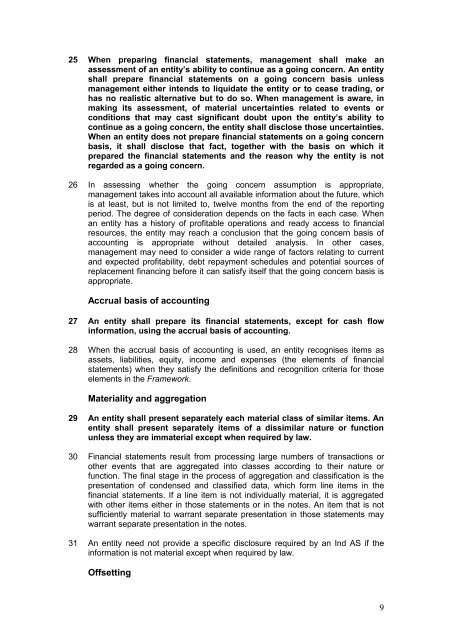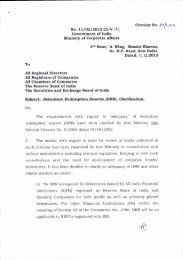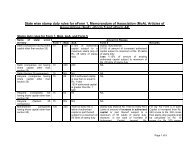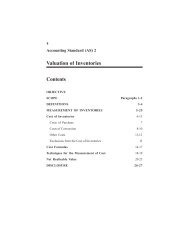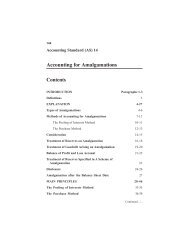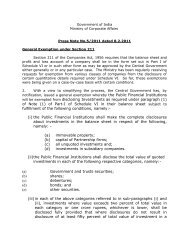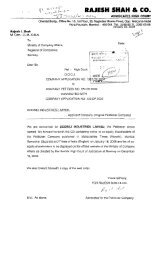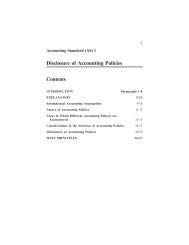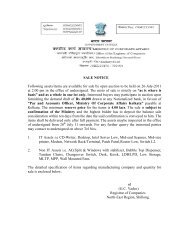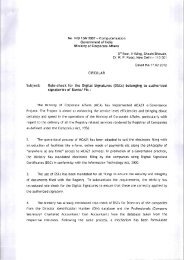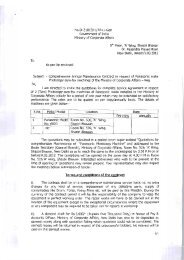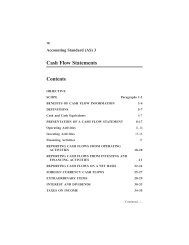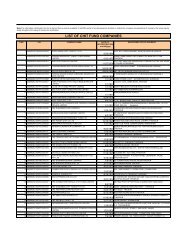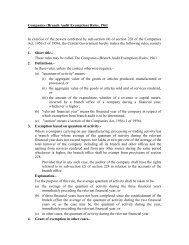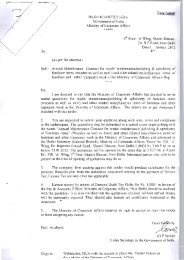Indian Accounting Standards(Ind AS) 1
Indian Accounting Standards(Ind AS) 1
Indian Accounting Standards(Ind AS) 1
Create successful ePaper yourself
Turn your PDF publications into a flip-book with our unique Google optimized e-Paper software.
25 When preparing financial statements, management shall make an<br />
assessment of an entity’s ability to continue as a going concern. An entity<br />
shall prepare financial statements on a going concern basis unless<br />
management either intends to liquidate the entity or to cease trading, or<br />
has no realistic alternative but to do so. When management is aware, in<br />
making its assessment, of material uncertainties related to events or<br />
conditions that may cast significant doubt upon the entity’s ability to<br />
continue as a going concern, the entity shall disclose those uncertainties.<br />
When an entity does not prepare financial statements on a going concern<br />
basis, it shall disclose that fact, together with the basis on which it<br />
prepared the financial statements and the reason why the entity is not<br />
regarded as a going concern.<br />
26 In assessing whether the going concern assumption is appropriate,<br />
management takes into account all available information about the future, which<br />
is at least, but is not limited to, twelve months from the end of the reporting<br />
period. The degree of consideration depends on the facts in each case. When<br />
an entity has a history of profitable operations and ready access to financial<br />
resources, the entity may reach a conclusion that the going concern basis of<br />
accounting is appropriate without detailed analysis. In other cases,<br />
management may need to consider a wide range of factors relating to current<br />
and expected profitability, debt repayment schedules and potential sources of<br />
replacement financing before it can satisfy itself that the going concern basis is<br />
appropriate.<br />
Accrual basis of accounting<br />
27 An entity shall prepare its financial statements, except for cash flow<br />
information, using the accrual basis of accounting.<br />
28 When the accrual basis of accounting is used, an entity recognises items as<br />
assets, liabilities, equity, income and expenses (the elements of financial<br />
statements) when they satisfy the definitions and recognition criteria for those<br />
elements in the Framework.<br />
Materiality and aggregation<br />
29 An entity shall present separately each material class of similar items. An<br />
entity shall present separately items of a dissimilar nature or function<br />
unless they are immaterial except when required by law.<br />
30 Financial statements result from processing large numbers of transactions or<br />
other events that are aggregated into classes according to their nature or<br />
function. The final stage in the process of aggregation and classification is the<br />
presentation of condensed and classified data, which form line items in the<br />
financial statements. If a line item is not individually material, it is aggregated<br />
with other items either in those statements or in the notes. An item that is not<br />
sufficiently material to warrant separate presentation in those statements may<br />
warrant separate presentation in the notes.<br />
31 An entity need not provide a specific disclosure required by an <strong>Ind</strong> <strong>AS</strong> if the<br />
information is not material except when required by law.<br />
Offsetting<br />
9


